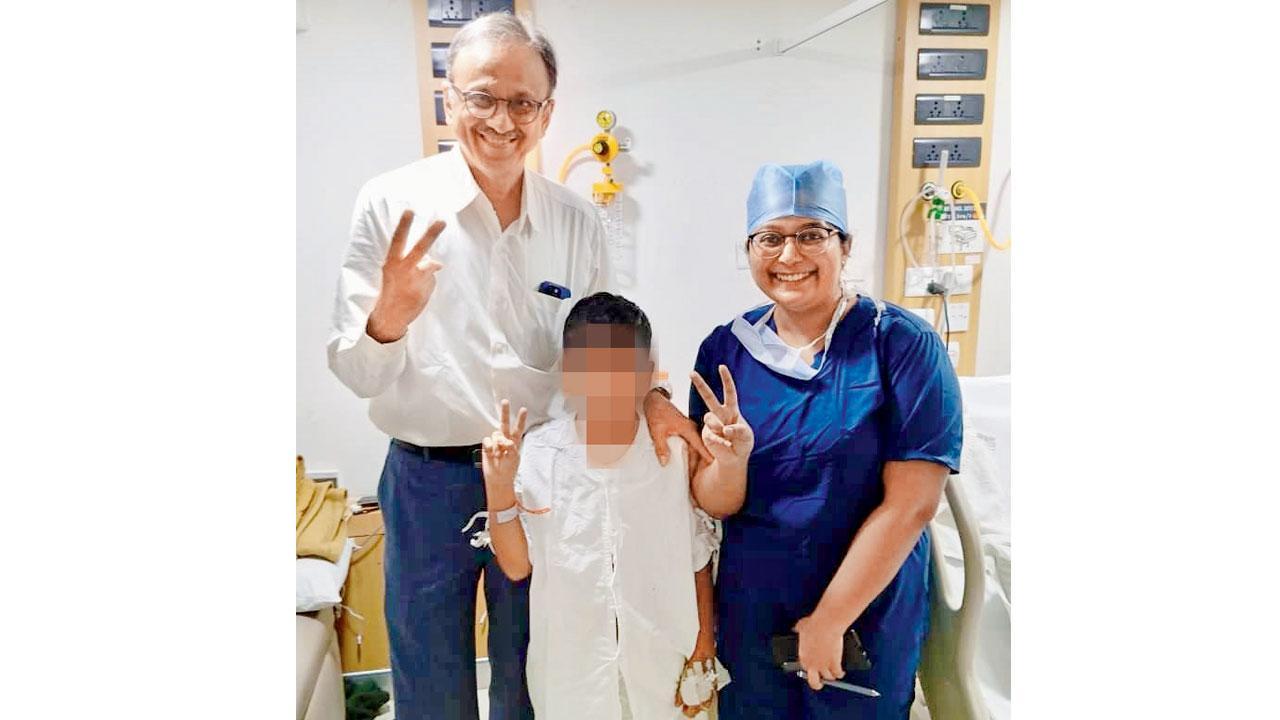The patient is likely the second youngest in India to be treated for the condition

The eight-year-old patient, along with his father
Key Highlights
- An eight-year-old boy from Yemen have been treated for papillary thyroid cancer
- A seven-year-old girl in Bengaluru was diagnosed with this condition
- Dr Fazal Nabi said it was after 20 years that he came across a case of this type
An eight-year-old boy from Yemen is likely the second youngest in India to have been treated for papillary thyroid cancer, a condition mostly affecting adults. Just last year, a seven-year-old girl in Bengaluru was diagnosed with this condition. Dr Fazal Nabi, the paediatric doctor involved in the case at the city’s Jaslok Hospital, said it was after 20 years that he came across a case of this type of cancer in children, the last was in a 14-year-old girl.
ADVERTISEMENT
The child visited the facility with a 4x4 cm swelling on the front and left side of the neck, which had been present for three months. Before visiting the city, the family had him checked at a health facility in Yemen where he was diagnosed with thyroid cancer. At Jaslok, the family had to again undergo a series of diagnoses to rule out any associated medical problems or further spread of cancer, after which the hospital decided to operate on the child.
Also Read: Childhood cancer has better cure rates than adults: Experts
Dr Mehul Bhansali, Director of Surgical Oncology, said in this particular case, there were challenges in handling delicate vital structures in the neck of a child however all the surgeons involved were highly trained and experienced. “The family consulted with multiple doctors and hospitals in the city before consenting to the procedure here,” said Dr Nabi. The parents of the child were unavailable due to their return to Yemen.
Papillary thyroid cancer affects the thyroid gland, which is located in the neck. While it is frequently diagnosed in adults, it is rarely seen in children and that too mostly in adolescents and older children rather than in very young children. Medical literature suggests it accounts for 1.4% of all paediatric malignancies.
“We had to be very careful to not damage any other glands while taking out the cancer. We still do not know the exact reason why this happens. There are possible factors like radiation exposure, consuming food with added colours in excess, and even genetics to a certain extent,” Dr Nabi said.
The treatment went on from January 8 to January 15, the child was still in post-operative care for another week after that. “The family has been following up virtually for about a month and will be returning for the completion of his remaining treatment but now we can safely say that the child is out of any danger,” Dr Nabi said.
1.4%
Per centage of paediatric malignancies
 Subscribe today by clicking the link and stay updated with the latest news!" Click here!
Subscribe today by clicking the link and stay updated with the latest news!" Click here!







